Dr. Taniguchi Tomohiko is a Professor at Keio University and Special Adviser to former Prime Minister of Japan Shinzo Abe.
He also served as a Counselor at Prime Minister’s Office between February 2013 and March 2014. After spending 20 years with Nikkei Business, he joined the Ministry of Foreign Affairs as Deputy Press Secretary and Deputy Director-General for Public Diplomacy. In 1999, the Foreign Press Association in London elected him President, the first from “the East of Suez.”
During his journalistic career, he spent sabbaticals at Woodrow Wilson School, Princeton University, as a Fulbright Visiting Fellow, at the Shanghai Institute for International Studies, and at the Brookings Institution as a paid, “CNAPS” fellow.
He also served as the Executive Advisor to the Chairman of the Central Japan Railway Company, KASAI, Yoshiyuki, while holding visiting professorships at Keio SDM and Meiji University School of Global Japanese Studies. He has authored and co-authored more than 10 books on international affairs.
Dr. Pramod Jaiswal, Strategic Affairs Editor at Khabarhub, spoke to Prof. Tomohiko Taniguchi on Japan’s growing significance in the Indo-Pacific region along with its growing strategic convergence with the QUAD members that is clearly evident in recent years.
The conversation has covered issues on Japan’s foreign policy, Japan’s defense white paper 2021, Taiwan issue, B3W, QUAD summit, Afghanistan issue, and Nepal-Japan Relations. Excerpts:
From Shinzo Abe to Yoshihide Suga, has Japan’s value-oriented foreign policy continued? And how has such value-oriented policy manifested in actual policies?
Yes, because Yoshihide Suga spent some 8 years with Shinzo Abe as his Chief Cabinet Secretary. In Japan’s political context, the chief cabinet secretary is the right-hand person to the then Prime Minister.
Indeed, Suga and Abe met more than 3 times daily, on an average. Sometimes for tea and coffee in afternoon hours. At each and every important meeting ranging from domestic issues to national security, Mr Suga joined with Mr. Abe. Evidence suggests that Suga has been among the most informed about the decisions and policies pursued and taken under PM Abe.
The second part is to say that Japan’s value-oriented diplomacy is relatively mature, nothing new.
In fact, when Prime Minister Abe was in office for one year between 2006-2007, he facilitated Japan’s value-based diplomacy because it was necessary for Japan at that time and still is necessary for Japan today to hoist a flag of democracy, respect for human rights and rule of law. In this context, that gigantic neighbor of Japan is interested in nothing of this nature.
Third, to hoist such a flag is tantamount for Japan to be saying to countries with similar and same value systems to come and join Japan to provide security and rules-based international order to the Indo-Pacific region.
It is one way to call other nations to join Japan and together try to maintain the rule of international order.
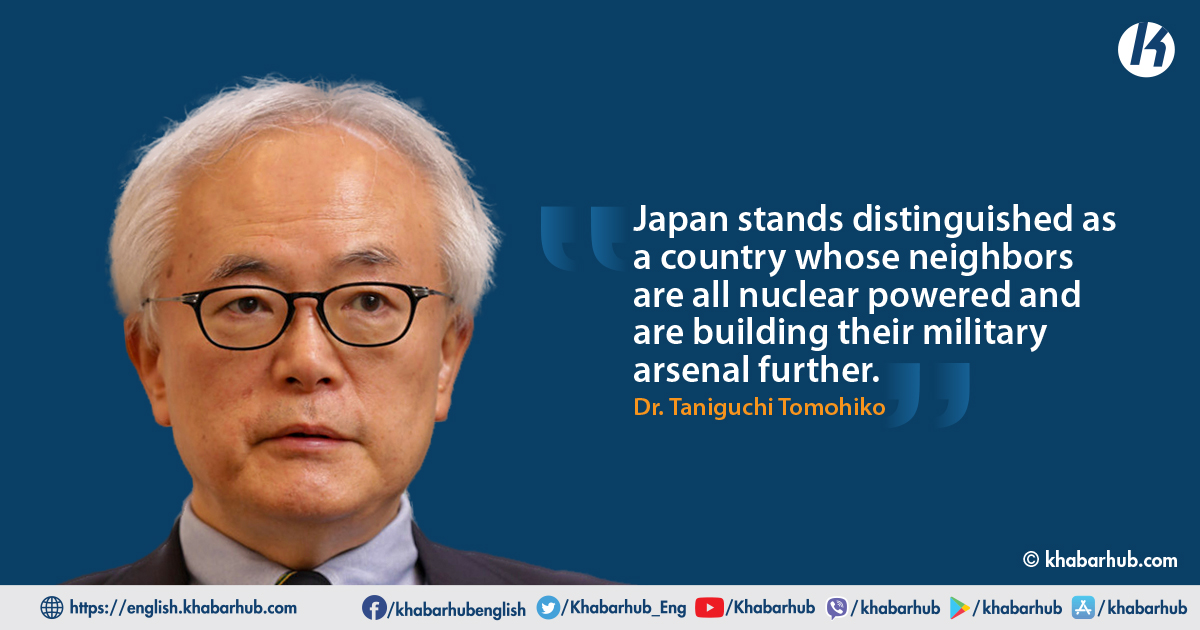
Japan released a new defense white paper, ‘Defense of Japan 2021’, which recognizes that regional security challenges ‘cannot be dealt with by a single country alone’. Does it mean that the world will be seeing a more proactive role of Japan in the region?
It is already happening and is very much necessary for Japan to play a much more proactive role in the provision of peace and security in the region and beyond.
There are a number of reasons. First and foremost, again the Chinese are provoking the Japanese territorial integrity every day. Therefore, it is no longer about whether or not the Chinese would be launching an invasion into Japanese territory, but the question is ‘How Soon?’.
And the response that Japan must show to the Chinese is not to misunderstand Japanese capabilities and do not underestimate at all, what Japan could do together with the United States.
The other reason is that the United States is fully aware that China is a ‘new kind’ of a challenge to the US. ‘New’ in the sense that China’s challenge is multi-faceted.
Previously during the Cold War, a confrontation between the USSR and the United States of America was tense but after all, it narrowed down to bean counting in that the competition between the two countries was about the number of nuclear warheads and the number of Intercontinental Ballistic Missiles.
Competition at the time after all was linear, straightforward and simplistic. However, in the 2020s, the confrontations and the competitions between the two superpowers range from traditional military competition to those over cutting edge technologies, artificial intelligence, deep space explorations and the likes.
The US must work jointly with other countries they can trust, and Japan stands taller than any other country as it is the second-largest freedom loving economy and its stock of technology is still awesome.
And this is why the US needs Japan as much as Japan needs the US. So that’s a compelling rationale even more so than before for the US and Japan to join forces together and work seamlessly together.
What does Japan’s recent decision to beef up its defense say about the strategic stability in the region? Is Japan’s security environment further deteriorating? How would you respond to it?
Japan’s neighborhood is not as safe as one wishes it to be. Let’s look at Russia, which is still a formidable nuclear power and is building its arsenal in the Arctic Sea and in the Western Pacific.
North Korea, a well-known case, never ever gives up its nuclear ambition. China, a case in point, is a country that is increasing, not decreasing, the number of nuclear warheads.
Given the advanced technologies that China is developing very fast, partly due to industrial espionage that China excels at, the country is building awesome military capacities as well. So, you are faced with those three nuclear powers, and that puts Japan in a unique place among its OECD peers.
Japan stands distinguished as a country whose neighbors are all nuclear powered and are building their military arsenal further.
Lately, Tokyo has been issuing more strong statements in backing Taiwan against Chinese coercion. It has even been hinting at military support if any prospective aggressions are to occur. How do you view Japan’s newfound willingness in defending Taiwan?
It does not take a genius to look at the interconnectedness between the two spaces, one covering Taiwan another covering the Japanese archipelago.
If continental China really wants to offend Taiwan using air capacities and surface sea capacities, the Japanese Okinawa archipelago will actually be the area in which China needs to neutralize Japanese capacities.
Once an invasion into Taiwan occurs, automatically it is going to involve both the United States and Japan. So, there is no separation whatsoever between the contingency scenarios over Taiwan and a similar threatening scenario against Japan.
That much has to be understood fully by the leaders of the Chinese Communist Party (CPC). Again, misunderstanding and underestimation can cause provocations and there must be no misunderstanding on the part of the CCP esp. on the intention and willingness of Japan to work with the United States to help maintain stability over Taiwan.
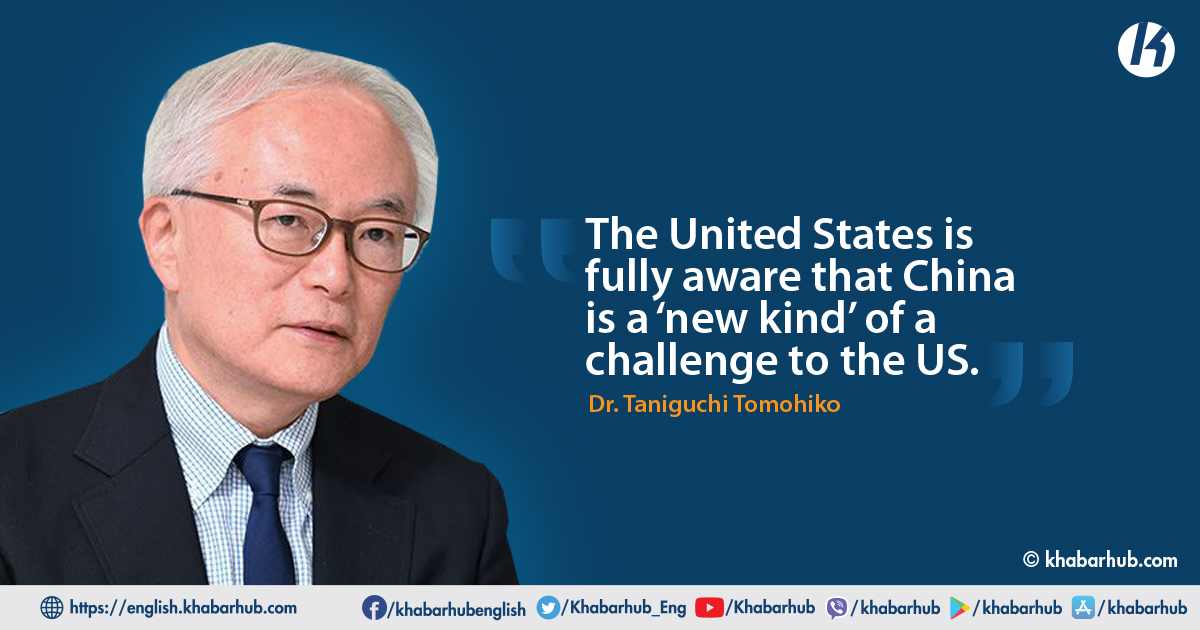
How is Japan observing the current security developments unfolding in Afghanistan? What is Tokyo’s position on Kabul?
Over the last twenty years, Tokyo has been a frontrunner in providing support to the Afghanis in their transition from military activities to civilian. That is what the Japanese government and civil society actors from Japan has done to ex-soldiers, so that they will give up their war-fighting culture.
But it takes long-term commitment and Tokyo’s position is unwavering. It is willing to provide that kind of humanitarian and educational support and assistance to Afghanistan in the long term, involving both government resources, and the civil society’s.
The peace process was long led by a Japanese veteran diplomat who chose to work under the Secretary-General of the United Nations. So, Japan is among the greatest stakeholders when it comes to whether or not peace and security can be maintained in Afghanistan.
Even though Japan has been a major player, especially in Southeast Asia, in the field of infrastructure, things have changed, especially after the launch of China’s Belt and Road Initiative (BRI).
What hope does Japan have from the “Build Back Better World” (B3W) Partnership? And can it provide an alternative to the China-led Belt and Road Initiative (BRI)?
Over the last several years, over multilateral processes involving G20 meetings and G7 meetings, a consensus has emerged.
That is to say, to build infrastructures in developing nations those projects must be sustainable, must be transparent, and must not put the recipient countries into a debt trap.
That’s what Japan started to call quality infrastructures, the ‘Build Back Better Projects’ – an extension to the idea of building quality infrastructure, to which even Beijing chose to subscribe to.
The Chinese are happy in subscribing to those ideas because there is no denying that the projects under pursuit must be bankable, must be transparent and must be a positive net contributor to bringing about job opportunities in the recipient countries.
When it comes to building infrastructures those are the things that are important, and as long as China’s initiatives can be pursued along the same lines that would be great.
The Japanese, Americans, and other G7 nations are willing to do similar things in Africa, Central Asia and South-East Asia. So, recipient countries can choose which would be in the long-term beneficiary to their long-term prosperity.
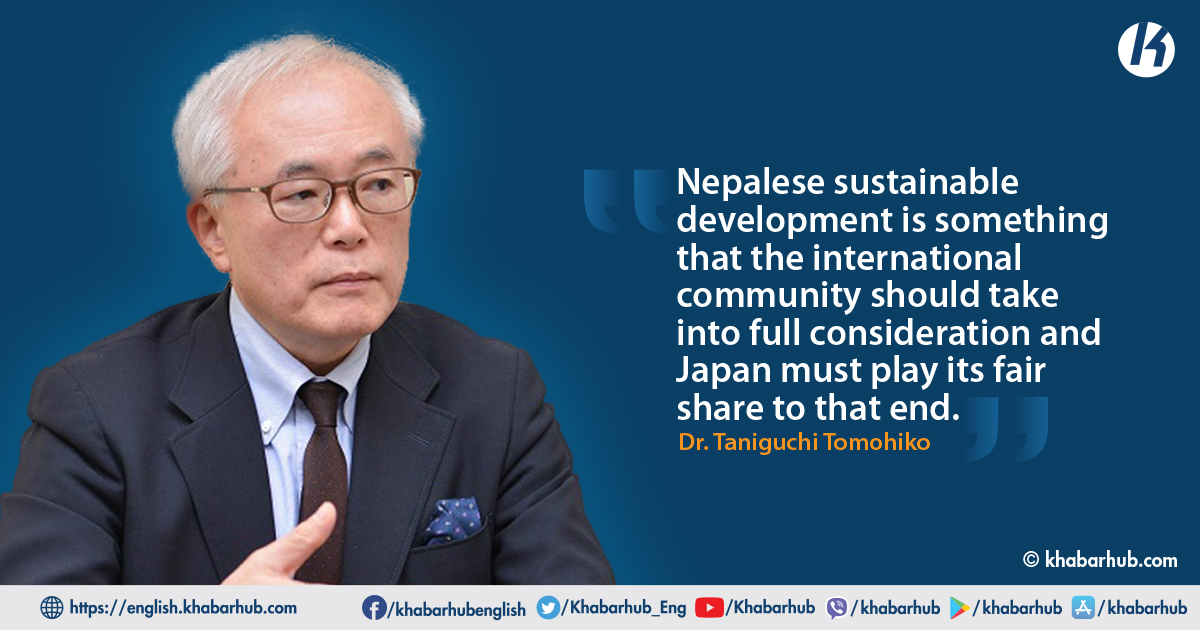
What hopes does Japan have for the upcoming first in-person QUAD summit likely to be held this fall in Washington DC? What does it anticipate to achieve out of the meet?
When Shinzo Abe came back as Prime Minister the second time in late December 2012 and immediately after taking office, he published an OP-ED piece at an online publication called Project Syndicate.
And the article was entitled “Asia’s Democratic Security Diamond”. And that title spoke volumes because it was to connect dots from Hawaii, Tokyo, Canberra and Delhi.
If you connect these four dots, a diamond of a sort emerges and Shinzo Abe chose to call it the “Asia’s Democratic Security Diamond”.
Later on, people started to call the same picture QUAD. So that’s the genesis of the QUAD. It is primarily to help provide wider, safer, more strategic space to the Indo-Pacific region with the power to be provided jointly by four democratic nations of India, Australia, Japan and the United States.
In the future, first and foremost, leaders of these four nations must continue to build a habit of speaking with each other on whatever issues pertinent to those countries.
Watch Video
Second, there must be the custom- the habit of meeting, speaking with each other, as frequently as possible, must be cemented by frequent meetings not only between and among those leaders but among the decision-makers in these four nations, ranging from military, diplomacy, environment, finance and so on and so forth.
While Technology cooperation may also be important, none of these leaders at the moment is interested in rapidly institutionalizing QUAD.
None of them is interested either in making QUAD something like the Indo-Pacific equivalent of NATO [North Atlantic Treaty Organization].
So over the next couple of years at least, QUAD is going to undergo a stage whereby those leaders will continue to build a habit of speaking with each other, and a habit of exploring possibilities of cooperation.
The Great-Power battle is playing out in Antarctica and Japan’s recent demand that it should be among the countries allowed to exploit resources lying below the surface in Antarctica was met with huge outrage in Moscow asserting the claim to be a threat to Russian rights in the Antarctic. How does Japan view Moscow’s response and what are Japan’s claims on the southern polar region?
All those claims must be under scrutiny by the international community, by the United Nations in particular. The UN must play an important role here in such areas as international norms and rules have yet to be fully established, let alone being exercised.
And so, in a way, that is a precursor to what could be like in outer space and deep outer space explorations where there are very few established international norms and rules.
So, Japan’s position is not to seek a ‘Japan-First policy’ and is to team up with like-minded democratic powers to make it possible for the international community to benefit as much as possible from common attempts to develop common goods, one of which is the resources and possibilities you could see in places like Antarctica.
How would you define Nepal and Japan’s relation? Where does Nepal stand in the Japanese Foreign Policy?
First and foremost, there is no animosity at all between the two nations which is good news. The second good news is that there is an increasing number of Nepalis living in Japan.
Half-jokingly (on a lighter note) may I say, in order for Japan to build the Nepalese economy you must go to those [Nepalese] restaurants that you find in Tokyo and elsewhere because those hard-working Nepalese send back money they gain to their houses.
Third, the Nepalese economy must develop in the least environmentally harmful way because the Himalayas and the region that the Nepalese have in your country are treasures of humans, and every kind of development, that you should seek must go hand in hand with safe and sustainable development of natural resources, including those in the mountainous area.
For that purpose, Japan could do much more to help build a sustainable ecosystem that would allow Nepalese economic development in tandem with tourism and hospitality industries and so on.
The long-term prosperity and sustainable development of Nepal are very much important because Nepal is in a very important strategic location with neighbors like China and India.
Hence, Nepalese sustainable development is something that the international community should take into full consideration and Japan must play its fair share to that end.
What plans does Japan have for developing nations like Nepal in their fight against COVID-19?
In the fight against COVID-19, in the short term, Japan has been providing a big number of countries with vaccines.
Those are the ones that AstraZeneca produced; however, that’s a short-term remedy. In the long-term, cooperation needed between developing nations, and countries such as Japan, would be to do something very much obvious starting from universal healthcare to educational awareness.
Indeed, providing universal healthcare (UHC) is something that Japan has chosen to seek when it comes to development aid to developing nations such as Sub-Saharan Africa and it must continue. Tokyo is more than ready to do even more in this age of pandemic.


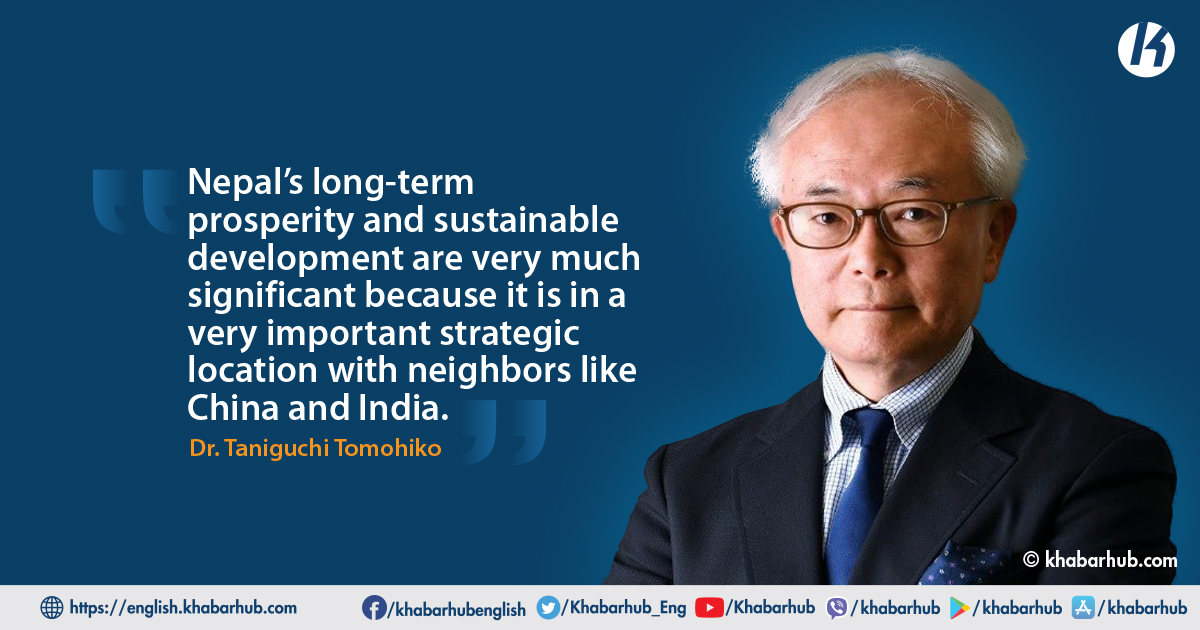
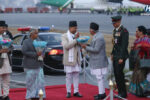
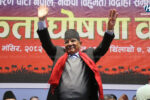
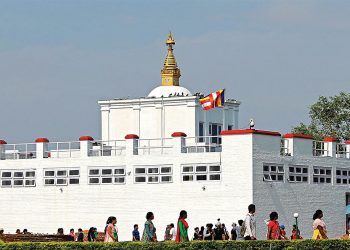
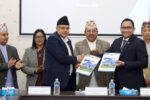


Comment